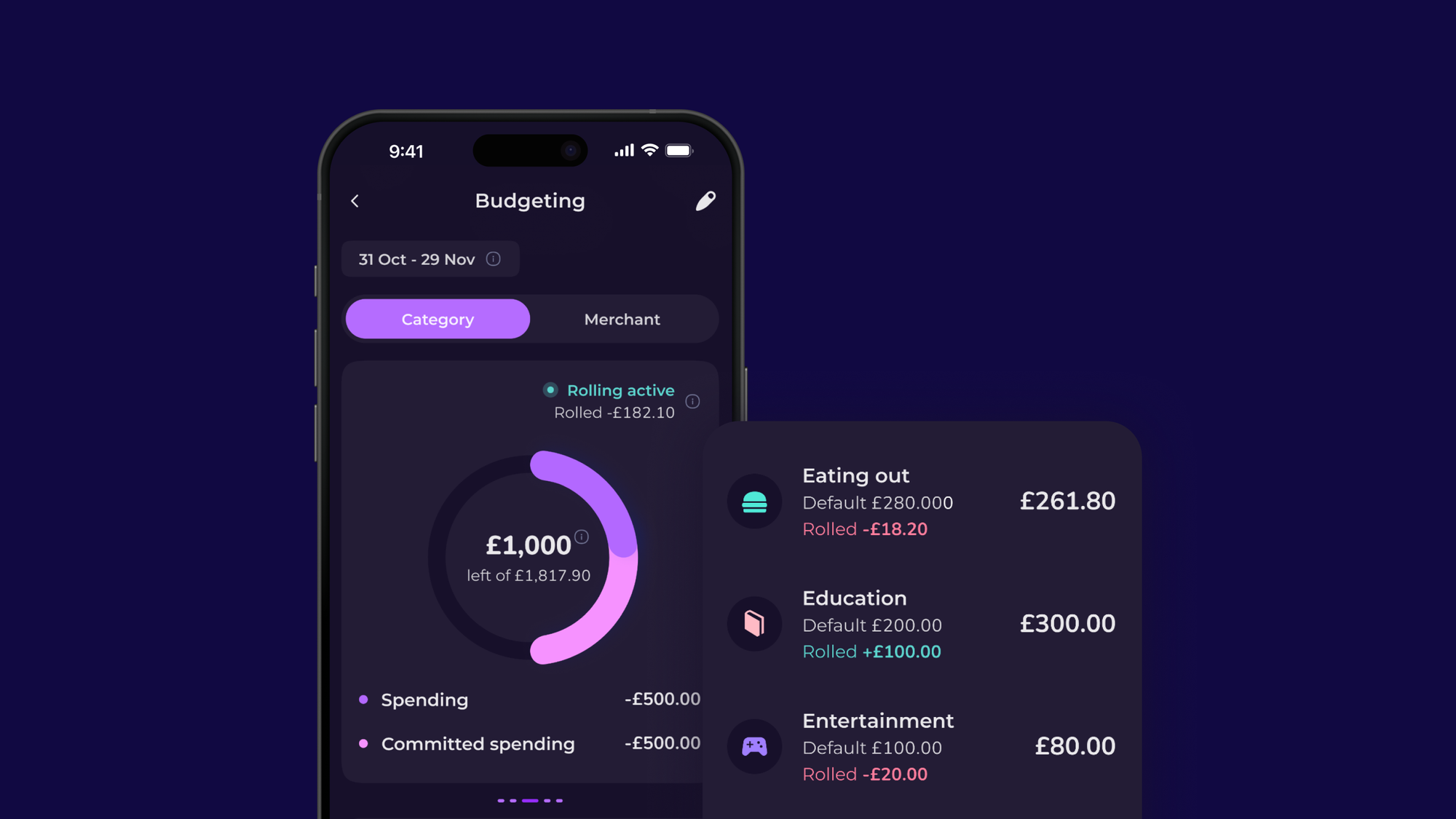FEATURED ARTICLE
ISAs: Understanding The Different Types Of ISAs

Rebekah May
March 31, 2025 •6 min read
TABLE OF CONTENTS
Types Of ISAs
Who Can Open an ISA?
Which ISA is Best for You?
Final Thoughts
An ISA (Individual Savings Account) is a tax-efficient way to save or invest money in the UK. Any interest or investment returns earned within an ISA are free from income tax and capital gains tax.
In the 2024-25 tax year, you can save up to £20,000 across different types of ISAs.
There are four main types of ISAs available in the UK:
- Cash ISA
- Stocks and Shares ISA
- Innovative Finance ISA
- Lifetime ISA
Additionally, there is a Junior ISA (JISA) designed for children under 18.
This article will walk you through the different types of ISAs, outlining their benefits and drawbacks so you can choose the best option for your needs. If you're short on time, the summary table below provides a quick overview of each ISA type.
| ISA Type | Annual Limit (£) | Best For | Key Benefit | Key Drawback |
|---|---|---|---|---|
| Cash ISA | £20,000 | Risk-free savings | Tax-free interest | Lower interest rates |
| Stocks & Shares ISA | £20,000 | Long-term investing | Tax-free investment growth | Investment risk |
| Innovative Finance ISA | £20,000 | Alternative investments | Potential for higher returns | No FSCS protection |
| Lifetime ISA (LISA) | £4,000 | First home/retirement | 25% government bonus | Early withdrawal penalty |
| Junior ISA (JISA) | £9,000 | Children’s savings | Tax-free savings for children | Locked until age 18 |
Types Of ISAs
1. Cash ISA:
A Cash ISA is similar to a traditional savings account, but the interest earned is tax-free. It’s ideal for risk-free savings and comes in different types:
A Cash ISA works similarly to a traditional savings account, but the interest earned is tax-free. We’ve already analysed the pros and cons in this article, but in general, a Cash ISA is ideal for risk-free savings and comes in different types:
Instant Access Cash ISA:
This type of ISA is great if you want to start saving, but also think you might need quick and easy access to your money. Most Instant Access Cash ISAs will let you withdraw money without incurring any penalties or withdrawal fees.
Regular Savings Cash ISA :
This type of account lets you put away a regular amount of money each month, which is good if you don’t have a lump sum of money to save. Regular Savings Cash ISAs also come with higher rates of interest than Instant Access Cash ISAs, although in return you do need to commit to keeping up the monthly repayments.
Fixed Rate Cash ISA:
A Fixed Rate Cash ISA is great if you want to take full advantage of your Cash ISA allowance and are unlikely to need the money in the next few years. This type of ISA normally offers the highest interest rate out of all the cash ISAs.
✅ Pros: Safe, tax-free interest, flexible options.
❌ Cons: Lower interest rates compared to other savings options.
2. Investment ISA:
An Investment ISA, or a Stocks and Shares ISA, is a type of investment account. Any money you save in an Investment ISA gets invested in funds and other types of investments.
As with a Cash ISA, you can put up to £20K in a Stocks and Shares ISA each tax year. You can open a Cash ISA at the same time as an Investment ISA, but you’ll need to make sure your total contributions don’t exceed the £20K annual allowance.
The benefit of putting your money in an Investment ISA is that capital gains and income are free from tax. This type of investment is therefore perfect for anyone with a long-term outlook to saving money and anyone that’s unlikely to need access to the funds over the next five years.
To invest in a Stocks and Shares ISA you’ll first need to pick an investment platform. You can choose to open an ISA with a range of different platforms.
DIY Platform:
If you’re an experienced investor, or you have a lot of time to learn the tricks of the trade then you might decide to opt for a DIY platform. Here you’ll manage your own investments, picking and choosing what funds and shares you want.
Robo Advisor:
If you’re new to investing, then consider opening a Stocks and Shares ISA with a Robo-advisor. These are the best options for anyone that doesn’t want the responsibility of making their own investment decisions. Companies like Nutmeg and WealthSimple are two examples of platforms that can be classified as Robo-advisors.
These two ways of investing will come with very different costs. Make sure you consider a variety of different investing platforms, taking each of their fees into consideration before opening your Investment ISA.
Whichever type of Investment ISA you open, remember that you are investing this money which brings a certain level of risk. The money you add to an Investment ISA can decrease in value, as well as increase, so think about your risk appetite and only invest in things you truly understand.
✅ Pros: Tax-free investment growth, long-term earning potential.
❌ Cons: Investment risks, potential loss of capital.
Innovative Finance ISA (IFISA)
An IFISA allows you to invest in alternative financial products, such as peer-to-peer (P2P) lending and crowdfunding. Returns can be higher, but they also come with greater risks.
✅ Pros: Potentially higher returns than Cash ISAs.
❌ Cons: No FSCS protection, higher investment risk.
3. Innovative Finance ISA (IFISA)
An IFISA allows you to invest in alternative financial products, such as peer-to-peer (P2P) lending and crowdfunding. Returns can be higher, but they also come with greater risks.
✅ Pros: Potentially higher returns than Cash ISAs.
❌ Cons: No FSCS protection, higher investment risk.
4. Lifetime ISA
A Lifetime ISA, or LISA, is a government backed scheme that was introduced to help people either buy their first home or save for retirement.
You can choose to open a LISA as a Cash ISA or a Stocks and Shares ISA. You can then save up to £4,000 a year, which comes out of your £20K ISA allowance.
The benefit of saving into a LISA is that the government pays a 25% bonus on however much money you save each tax year. For example, if you add the maximum amount of £4K into your LISA, the government will add another £1K to your savings.
You can open a LISA from the age of 18, until you’re 39 years old, which is great for young savers that need help saving for a house deposit.
The only downside of a LISA is that the money must be used to buy a house, or for retirement. If you want to withdraw the money for a different purpose, you’ll lose the 25% bonus.
✅ Pros: Free government bonus, can be used for home purchase or retirement.
❌ Cons: Penalty for withdrawing funds for other reasons, age restrictions (must be 18-39 to open).
5. Junior ISA:
Last on our list of types of ISAs is the Junior ISA. A Junior ISA (JISA) is a type of account for anyone under the age of 18.
They can be opened by a parent, or legal guardian and the money can be saved in either a Cash ISA, or a Stocks and Shares ISA.
You can save up to £9K in a Junior ISA each year. This does not impact your £20K allowance as the money isn’t technically yours.
Junior ISAs are a great way to get your children involved in saving money. Your child can take control of the account when they turn 16, although they’ll only be able to access funds when they turn 18. As soon as they reach 18, the money is moved into a normal ISA and they’ll be given full control of any money that’s been saved.
✅ Pros: Helps children build savings for the future.
❌ Cons: Locked until the child turns 18.
Who Can Open an ISA?
To open an ISA, you must be:
- 18 or older (16+ for a Cash ISA, 18-39 for a Lifetime ISA)
- A UK resident (or a Crown servant abroad)
- Opening the account in your own name (ISAs cannot be held jointly)
Which ISA is Best for You?
The right ISA depends on your financial goals:
- For easy access and risk-free savings: Cash ISA
- For long-term investments and potential growth: Stocks and Shares ISA
- For alternative investments like peer-to-peer lending: Innovative Finance ISA
- For homebuyers and retirement savers: Lifetime ISA
- For children’s savings: Junior ISA
Final Thoughts
ISAs are a powerful tool to grow your savings while keeping your earnings tax-free. Whether you’re looking for safe savings, investment growth, or a government bonus, there’s an ISA to match your needs.
Before choosing, consider your risk tolerance, financial goals, and how soon you’ll need access to your money.
You may also like
Check out these related blog posts for more tips
© 2025 Emma Technologies Ltd. All Rights Reserved.
Emma is registered and incorporated in England and Wales.
Emma Technologies Ltd is an appointed representative of RiskSave Technologies Ltd, which is authorised and regulated by the Financial Conduct Authority (FRN 775330).
Payment services (Non MIFID or Deposit related products) for Emma Technologies Ltd are provided by The Currency Cloud Limited. Registered in England No. 06323311. Registered Office: Stewardship Building 1st Floor, 12 Steward Street London E1 6FQ. The Currency Cloud Limited is authorised by the Financial Conduct Authority under the Electronic Money Regulations 2011 for the issuing of electronic money (FRN: 900199). For more detail on how your money is protected please see here. You can also find Currency Cloud's Terms of Use here.
Emma Technologies is an Introducer Appointed Representative of Quint Group Limited and not a lender. Quint Group Limited is authorised and regulated by the Financial Conduct Authority (Firm Reference Number 669450). Monevo Limited is an Appointed Representative of TransUnion International UK Limited. TransUnion is authorised and regulated by the Financial Conduct Authority (Firm Reference Number 737740). Emma Technologies introduces customers first to Quint Group Limited, as a licensed credit broker, who then refers on to Monevo Limited.
Emma is registered with the Financial Conduct Authority under the Payment Services Regulations 2017 for the provision of payment services.
Financial Conduct Authority Reg Nr: 794952.
Company Registration Number: 10578464.
Data Protection Registration Number: ZA241546.
All testimonials, reviews, opinions or case studies presented on our website may not be indicative of all customers. Results may vary and customers agree to proceed at their own risk.
Resources: Cancel subscriptions, Cashback offers, Who charged me, Rent Reporting, Budgeting, Investment universe, Emma vs Moneyhub.
Featured cashback offers: Samsung, SimplyCook, NordVPN, Audible, M&S Homeware.









